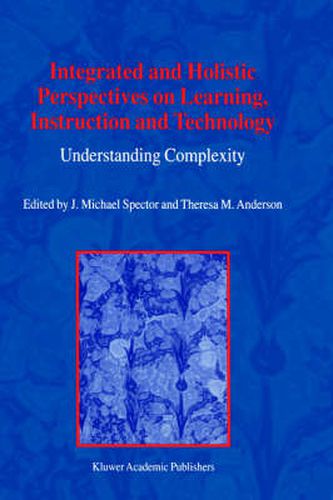Readings Newsletter
Become a Readings Member to make your shopping experience even easier.
Sign in or sign up for free!
You’re not far away from qualifying for FREE standard shipping within Australia
You’ve qualified for FREE standard shipping within Australia
The cart is loading…






This title is printed to order. This book may have been self-published. If so, we cannot guarantee the quality of the content. In the main most books will have gone through the editing process however some may not. We therefore suggest that you be aware of this before ordering this book. If in doubt check either the author or publisher’s details as we are unable to accept any returns unless they are faulty. Please contact us if you have any questions.
One outcome of recent progress in educational technology is strong interest in providing effective support for learning in complex and ill-structured domains. We know how to use technology to promote understanding in simpler domains (for example, orientation information, and procedures with minimal-branching), but we are less sure how to use technology to support understanding in more complex domains (such as managing limited resources, and understanding environmental impacts). Such domains are increasingly significant for society. Technology like collaborative tele-learning, digital repositories, and interactive simulations can provide conceptually and functionally rich domains for learning. However, this introduces the problem of determining what works in which circumstances and why. Research and development on these matters is reflected in this collection of papers. This research suggests a need to re-think foundational issues in educational philosophy and learning technology. One major theme connecting these papers is the need to address learning from a more holistic perspective. A second concerns the need to take learners where and as they are, integrating technology into effective learning places. Significant and systematic progress in learning support for complex domains demands further attention to these important issues.
$9.00 standard shipping within Australia
FREE standard shipping within Australia for orders over $100.00
Express & International shipping calculated at checkout
This title is printed to order. This book may have been self-published. If so, we cannot guarantee the quality of the content. In the main most books will have gone through the editing process however some may not. We therefore suggest that you be aware of this before ordering this book. If in doubt check either the author or publisher’s details as we are unable to accept any returns unless they are faulty. Please contact us if you have any questions.
One outcome of recent progress in educational technology is strong interest in providing effective support for learning in complex and ill-structured domains. We know how to use technology to promote understanding in simpler domains (for example, orientation information, and procedures with minimal-branching), but we are less sure how to use technology to support understanding in more complex domains (such as managing limited resources, and understanding environmental impacts). Such domains are increasingly significant for society. Technology like collaborative tele-learning, digital repositories, and interactive simulations can provide conceptually and functionally rich domains for learning. However, this introduces the problem of determining what works in which circumstances and why. Research and development on these matters is reflected in this collection of papers. This research suggests a need to re-think foundational issues in educational philosophy and learning technology. One major theme connecting these papers is the need to address learning from a more holistic perspective. A second concerns the need to take learners where and as they are, integrating technology into effective learning places. Significant and systematic progress in learning support for complex domains demands further attention to these important issues.